

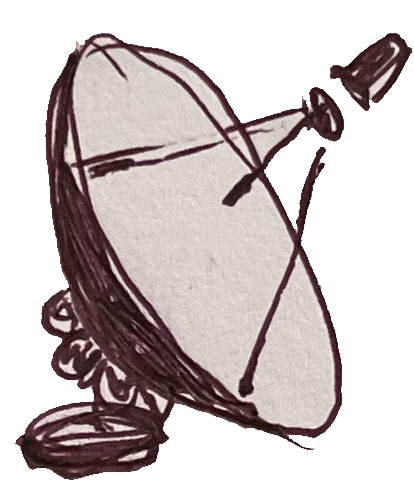
2/11 18h – 20h @witte foyer Beursschouwburg
SOTA Foyers #3 : Share your activist skills
SOTA invites for an evening of skill sharing for anything that has to do with activism, self-organization, artivism, collective actions, collective care, care skills within activism etc.
As artists, we’re all diversely engaged in activism, whether it’s how we’ve organized our practice, joined protest or are committed to collective work. We wish to call on the knowledge within our community and create a moment of informal exchange and learning.
In the Foyer of Beursschouwburg, we will divide in small groups and learn together. You are welcome to simply come talk about a skill, tool or experience that was valuable but you can also imagine it as a mini workshop. And if you don’t have something to share but are eager to learn a skill or tool and have a text, protocol, diagram to learn from, be welcome!
4/11 – 18:00 @café Zinnema
Cognitive Dissonances in Da cultural field
Moderated by Maria Dogahe
More and more cultural workers are getting vocal about the dissonance existing between progressive theories and field realities.
How triggering and annihilating it can be to maintain our core values when we don’t have agency over the entire chain of powers.
It can be challenging to sense whether our contributions are being engaged with a genuine intention of transforming power structures from within, or if they are marketed, appropriated, tokenized, instrumentalized. Don’t let them sell your magics.
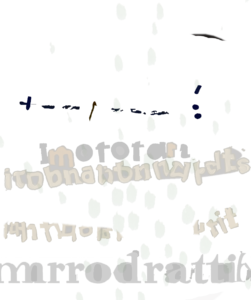
Cognitive dissonance in artistic practice from the point of view of cultural workers.
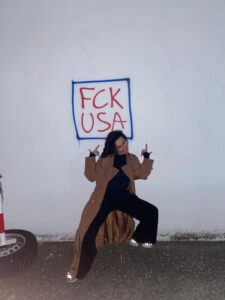 Maria Dogahe (1995) is a performing arts curator and cultural activist. She is currently working at Kaaitheater, where she programs performances and put love and thought into the context around them, initiating projects such as iet’s extra (together with many artists and comrades) or Ramadan friendly (together with Fatima-Zohra Ait El Maâti and plenty of allies in Brussels). Her curatorial practices are rooted in collaboration, community building, experimenting and (most importantly) having fun.
Maria Dogahe (1995) is a performing arts curator and cultural activist. She is currently working at Kaaitheater, where she programs performances and put love and thought into the context around them, initiating projects such as iet’s extra (together with many artists and comrades) or Ramadan friendly (together with Fatima-Zohra Ait El Maâti and plenty of allies in Brussels). Her curatorial practices are rooted in collaboration, community building, experimenting and (most importantly) having fun.
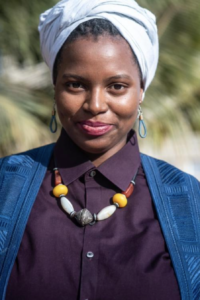
Baobab van de Teranga (1993) is an artist and curatorial assistant at the intersection of research and spatial design dedicated to public programs. She has a strong focus on conversational spaces, critical theory and creative ways of arts productions and circulations. Often called Baobab van de Teranga, she develops an oceanic methodology in her curatorial approach : fluid, permanent and abundant.
Stephanie Collingwoode Williams
is an anthropologist, ex-social worker, trainer and consultant.
She trains organisations big and small, local and international, on anti-racism, intersectionality, climate justice, feminism, queerness and biraciality.
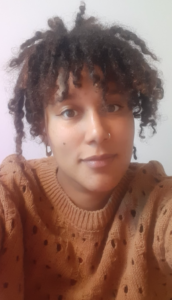
Stephanie was raised in Ghana, has studied in the Netherlands and Belgium, where she has been involved with various climate justice movements and anti-racist movements, such as Code Rood and Kick-Out Zwarte Piet.
Over the years she has participated in various actions against the glorification of Belgium’s colonial history.
In 2020, she was active as one of the spokespersons for BNFBL, who organized Black Lives Matter marches in Belgium.
Among other things she is also a curator for a decolonial festival (SOKL) and member of collectif faire-part, speaker and former volunteer for Black History month Belgium among other collectives.
She enjoys writing, exchanging thoughts on a magnitude of issues and working on community.
Samira Hmouda (1988, Brussels) is an artist, curator and cultural manager driven by a passion for self-taught trajectories. She bridges visuals and the performing arts landscape by highlighting authors who stand out for their freedom of expression, tone and form.
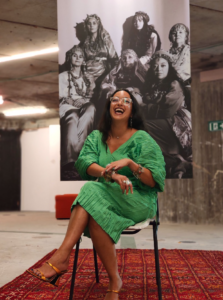
Founder of the System_D festival in 2012, Samira provides a platform for emerging , self-taught filmmakers to create, reflect on and bloom their work. Her aim isto enlighten discourse and narratives that are often forgotten in mainstream circuits, offering a perspective of decolonial creation. A creation that questions dominant narratives and encourages artists to create new visual and artistic forms from their environment.
As a specialist in the audiovisual arts, she devotes herself to the production of audiovisual creations and acts as ArtistCoach, offering artistic, financial and production support to young talent. At the same time, she is working on her own project, a documentary entitled “Le Royaume”. What animates and runs through her work are stories from the margins and invisibilized trajectories, and the questioning of dominant narratives through art.
part 2 · magic sells · Performing Arts Festival · Brussels · Bâtard 2023 ©
The show on the first evening (15th April) is a separatistic evening for people of the global majority/BIPOC. So please only book that evening if you identify with those terms. The show on the 16th of April is open for all. ---- We, Adam and Amina Seid Tahir, see how the terms BIPOC and people of color are less fortunate in their attempts of combating white supremacist andimperialistic ideologies, since they form in relation to whiteness (those ”not of color”) and therefore keeps whiteness as the norm. We rather use the term people of the global majority since we aren’t interested in identifying in relation to whiteness or white supremacy. ---- The term Global Majority was coined by Rosemary Campbell-Stephens. ”Global Majority refers to people who are Black, Asian, Brown, dual-heritage, indigenous to the global south, and or have been racialised as 'ethnic minorities’.” 1 This term was created for people of the global majority to not have to identify in relation to whiteness and to emphasize the fact that these groups make up the majority of the world’s population, specifically 80%. ---- The reason for choosing to use the term BIPOC despite this, is because we’re aware that the term people of the global majority hasn’t received as widespread attention yet. And since our main goal for this showing is to welcome our siblings from the global majority for a showing without the presence of a white colonial gaze, we choose to use the term that seems to be most commonly used in this festivals locality. ---- 1. Global Majority; Decolonising the language and Reframing the Conversation about Race” by Rosemary Campbell-Stephens, 2020